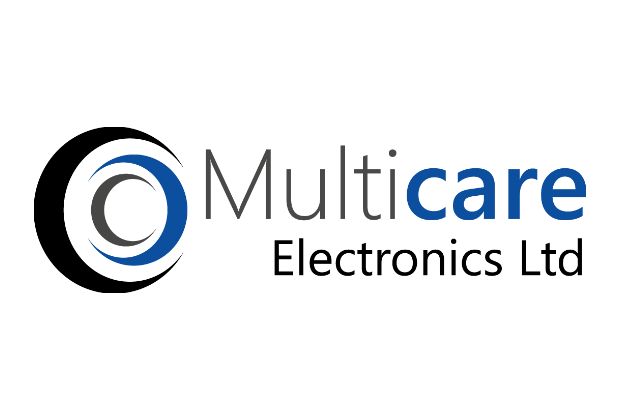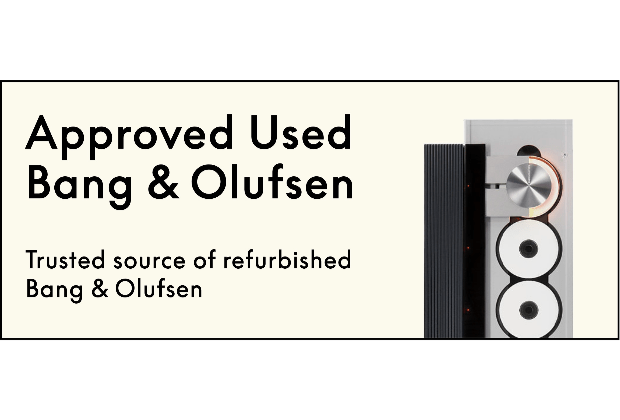Home › Forums › Product Discussion & Questions › BeoLab › Beosound core – Beolab 18 connection
- This topic has 4 replies, 5 voices, and was last updated 2 years, 9 months ago by
Curly.
-
AuthorPosts
-
14 May 2022 at 07:53 #34816
jamesj
BRONZE MemberI’m sure this has been answered (at least in part), so sorry for any potential repetition, but the site is a bit difficult to navigate at the moment.
I have recently bought a pair of Beolab 18’s and a beosound core. I’m using the core, as I also have a Stage and A9 and I prefer the B&O app to Chromecast or Airplay for multiroom.
While I was waiting for the core to be delivered, I tested the speakers by connecting my laptop via headphone to RCA. Sounded great, Though cracked a little on connection.
Source: Apple Music; 24-bit, 48Hz output selected via my MacBook’s ‘Audio Midi setup’.
I now have the core connected via Powerlink (daisy chained); 2.5mm B&O Powerlink cable.
Listening now with Deezer HiFi doesn’t sound quite as good. I know Deezer Hifi is lower quality than Apple Music (16-bit, 1.411 Kbps), though they claim on their site this is CD Quality. Would I be hearing the difference, or is it more likely the cables?
According to the Tech Specs the core supports:
“Standard sample rates up to 192 kHz, stereo and up to 24 bit”
It is not at all clear to me how you would get this to the core, or from the core to the speakers.
So my questions are as follows, for the best quality source at the speakers:
- Should I upgrade the Powerlink to some expensive Audioquest ethernet cables (a recommendation from the HiFi shop)?
- Should I use optical? Will the core control the volume if I do?
- Should I use a Transmitter 1?
- Is this more likely a Deezer/source issue? If so, any advice on how to get a better quality source to the core, can I keep multiroom if I combine something with the optical in?
Any advice, answers to the questions above, or more logical setup welcome!
Sorry if these are dumb questions, I did quite a bit of googling, but couldn’t find a definitive answer to what happens to the sample rates via the different cable options (except with transmitter 1, though that seems to come with its own problems).
I’m also not 100% on what the DAC in the 18’s is doing.
Under ‘Inputs and outputs’ on the B&O site tech specs it states:
In: Sample rate 32k, 44.1k, 48k, 96k/PCM16-24 bit
Out: Sample rate 48k/PCM 24 bitThough it looks like that could just be for Toslink/Optical. Does this mean that anything above 24/48 will be downsampled anyway, or have I misunderstood this completely?
15 May 2022 at 08:53 #34817Hi jamesj,
Please don’t worry, these are very sensible questions!
- Never use “audiophile” Ethernet cables for Beolab speakers, as this is not an Ethernet connection (even though the plugs are the same). Beolab speakers require fully shielded cable, which rules out Ethernet (even high-end cables). I can help with shielded RJ45 Powerlink cables if required, but there is no audible improvement to be made here if everything is working well at the moment.
- Yes, the Core gives out a volume controlled optical signal, so this can be used to connect directly to the Beolab 18 speakers. Some users do report improvements from using the optical connection, but opinions vary. Well worth a try…
- Yes, Transmitter 1 is a good option if you need a wireless link to the speakers, whilst the sound quality won’t suffer, it won’t improve the sound. If cables are OK for your room, then leave the cables in place.
- There are various digital sources that can be linked to the optical input of the Core for Deezer, without losing multi-room capabilities. One cheap and simple option is Bluesound Node 2i, but there are plenty of other products that can be used instead.
I can help with cables for any of these options via my sponsor link below!
Kind regards, Steve.
Location: The cable workshop, England
Favourite Product: Beosystem 72-23
Signature: Cables, friendly advice and great ideas for connecting Bang & Olufsen! Ask any questions at https://soundsheavenly.com to get the best from your B&O! Please visit my B&O YouTube channel at https://www.youtube.com/soundsheavenlycables
My B&O Icons:
15 May 2022 at 09:19 #34818To your numbered questions…….
Definitely not the 1.
I’d – in that case – probably go for 2………although I am not so sure that it always will be significantly better.
As for controlling the volume via the Core – yes, you can do that – there is a setting just for that.3. would be an extra not necessary step…..unless you’d like to run the BL18 wireless.
When you used your Mac/Music, your source material probably was regular 44.1/16, that then was upsampled to 48/24 in the settings there, right?
When you compare stuff from two different music services, you can not be sure that the mastering is identical (Apple has their own rules there).
This means that – if you want to do a comparison between an analog connection and a digital – there are many variables. First of all the source material has to be exact the same and also the SPL (the volume you listen at) must be identical. In real life this can be very complicated and can easily lead to ‘quick conclusions’.
The ‘DAC’ in the BL18 is not just a regular DAC like you often see as a device in setups with a digital source and an analog input. It is much more an integrated part of the sound processing in the speaker….I am sure ‘someone else’ can explain this better.
All processing there is based on a conversion to 24/48 in order to keep the sound consistent with all inputs.IMHO you should not worry that much about sample rates and bitdepth. Even source material in 44.1/16 can sound excellent depending on the actual recording, the mixing and the mastering – a higher bitrate/bitdepth is by no means a guaranty for ‘better sound’.
I recomment that you try listening to what you normally listen to with an analog connection (PL/good shielded PL cables) and with an optical connection from the BS Core for a while……in order to see what suits you best.
Remember that…..when it comes to audio gear, cables, sample/bit rates etc – it is not about ‘good or bad’, it is much more about ‘different’……..unless you – of course – have really bad stuff.
After all it is about you liking what you hear and not about which sample rates/bitdepths and cables you use.MM
Location: Flensborg————Danmark
3 May 2023 at 13:45 #34819babar
BRONZE MemberHi,
I hope you have had some success in resolving the issues from last May. I can only comment on 2 and 4.
Should I use optical? Will the core control the volume if I do?
if using optical the signal goes digitally unprocessed and is converted to analogue at the very end which is ideal. so in most cases using SPDIF and Coaxial is the only way to get a digital signal in complete purity over. When connecting via a RCA/line-out one would be converting a digital signal to analogue which I gather the core would then convert to digital and it would be converted again at the end. Best to go optical.
This actually leads to my question which is that the Core is limited in it’s Optical output to 96 kHz.
Is this more likely a Deezer/source issue? if so, any advice on how to get a better quality source to the core, can I keep multiroom if I combine something with the optical in?
The best streaming apps for Quality of Signal are Qobuz, Tidal and Amazon Music. It can depend on a lot of factors but at the end of the day these 3 have the most highest def libraries out there. With Tidal you would need to be concerned about MQA unfolding hence my goto is Amazon Music.
I can’t comment on multiroom as I havent’ used it but I do not see an issue.
If so, any advice on how to get a better quality source to the core, can I keep multiroom if I combine something with the optical in?
I am trying to solve for this problem in the following setup in my living room:
Sound Theatre, Beolab 18’s, Beolab 19, AppleTV, LG77″
I am running Tidal and Quboz on Roon. Amazon Music HD (my fav). (& Apple Music, Spotify and Pandora)
In other rooms in the home I am running Blusound which is great in that it supports all the music services I use and provides an output of 192 kHz. I also have a couple of DAP’s specifically for my headphones (Focal Stellia, HifiMan XS, Meze Elite’s) and really value having music available at 192 kHz and sometimes use DSD.
I would like to play at 192kHz on my B&O system.
Apple TV which is my primary music source to the sound theatre is limited to 16-bit 48 kHz
B&O says the Core is able to process “standard streams up to 192 kHz” and the “optical is limited to 96 kHz”. With no streaming service that B&O integrates with offering no higher than 48Khz h0w can I get to the 192 kHz?
With all that being said I think the best is to go with a bluesound node or other DAP as you will be able to get 96 kHZ into your B&O. once you have that you can listen to something on deezer and compare the same album to one on amazon music and see a significant difference.
Bear in mind that optical cables are impacted by quality and would suggest buying something more decent than what comes free in the box.
Would be great to hear how it went.
3 May 2023 at 17:40 #34820Curly
BRONZE MemberI see everyone has covered this fairly well so I’ll just briefly share my own experience:
In my Core+BL18 system, I tried an Audioquest Cinnamon Ethernet cable and it was completely unusable. The speakers hissed loud white noise from the moment I switched everything on. It was a disaster.
I swapped back to Monoprice Cat7 S/FTP cables and they worked great.
That said, I occasionally experienced some grounding issues somewhere in the chain of components that would express themselves as faint static. When I giggled the Powerlink cable at the Core, it would go away.
I got fed up with it and swapped everything to Monoprice basic optical Toslink cables and will not go back. Because they’re digital cables, there is no worry about EM interference, ground static, etc. etc. etc. Everything works perfectly and with no background hissing or white noise of any kind. I also heard no meaningful difference in sound quality between the good Cat7 cables and the optical Toslink.
I use the optical Toslink now and expect I’ll always use unless I bring a Beovision into the mix.
In short, +1 for optical Toslink cables between a Core and modern BeoLab speakers.
-
AuthorPosts
- You must be logged in to reply to this topic.































